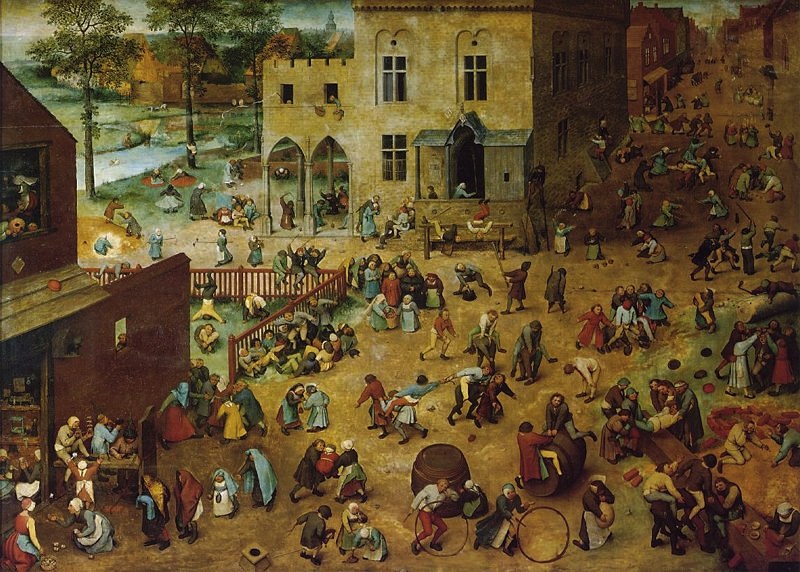Play, the basis of culture?
Jennifer Vasquez
Play comes naturally to young things – like these piglets, equally happy playing with their Christmas gifts or with the wrapping paper. Or children, who effortlessly play all day at housekeeping, firefighting, fort-dwelling, save-the-worlding….
When did we lose this? Why did we lose this?
Was it way back when working the soil became toil with sweat, when the burden of childbearing came down? Maybe occupational labor was originally occupational play – 9 to 5 of fun and games. Did we forget how to play when, like Tom Hanks in “Big,” we permitted “important responsibilities” to make us forget who we really are? If so, is there anything left to be redeemed?
When adults use the word “play” as in, “We played at the beach all weekend,” it sounds strange to me, although it is hard to nail down why – is it that adults don’t have the capability to play or shouldn’t be playing? Have we simply permitted a bent and distracted world to shame it out of us?
My husband informed me that the word “play” in Spanish as it refers to musical instruments is the same word as “touch,” so that, for example, you touch the trumpet or touch the oboe. Play implicates the physical world, but it probably comes a lot easier for most adults to play in their minds with ideas, inspirations, wonder – although most of us could probably play more in this area as well.
I liked this idea of linking play to an object – that even performance art is tactile, although in a different sense than painting, or weaving, or landscaping. A lot goes on in the mind during such play, for sure, and is connected to the body, to movement, to the incarnate.
Could it be that just as children are learning how to become adults through play, art is a blessing that survived the curse, or maybe one of the blessings that accompanied the curse, giving us the playing field for learning to be re-creators, learning how to come into our status as image-bearers?
